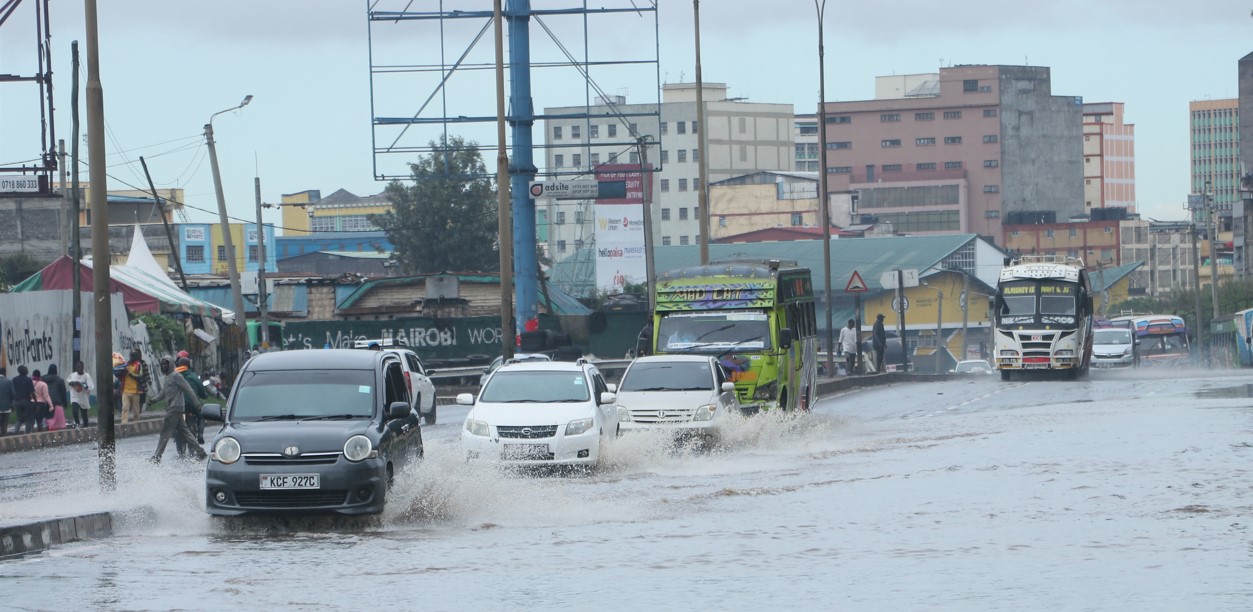Kenya among African countries to experience below-average rainfall in March-May season

An early to normal onset of rains is expected in most areas, though ICPAC said delays are likely in central Kenya, southern Ethiopia, and central Somalia.
Kenya will experience below-average rainfall during the March to May rainy season, according to the latest forecast by the IGAD Climate Prediction and Applications Centre (ICPAC).
The period, critical for the equatorial region of the Greater Horn of Africa, contributes up to 60 per cent of the annual rainfall in many areas.
More To Read
- Millions of hectares are still being cut down every year. How can we protect global forests?
- COP30 delivers mixed results on climate action, WEF experts say
- Managing conflict between baboons and people: what’s worked - and what hasn’t
- Kenya, Sweden partner to curb billions lost in post-harvest food waste
- UNEA-7 opens in Nairobi as global environmental diplomacy faces major challenges
- 2025 set for second-hottest year on record
The forecast indicates a higher likelihood of reduced rainfall in eastern and northern Kenya, along with much of Somalia, southern and north eastern Ethiopia, Djibouti, coastal Eritrea, and parts of Uganda, Rwanda, Burundi, and Tanzania.
Regions near the Ethiopia-Kenya-Somalia border, southern Eritrea, and south western South Sudan are also expected to experience below-normal rainfall.
In contrast, wetter-than-normal conditions are projected in most parts of Tanzania, eastern Uganda, eastern South Sudan and western Ethiopia.
ICPAC said there is a high chance, exceeding 70 per cent, that rainfall during the season will surpass 200 mm in south western Ethiopia, western Kenya, Uganda, Rwanda, Burundi, and Tanzania.
“There is a high chance (over 70 per cent) that the seasonal rainfall will exceed 200 mm in south western Ethiopia, western Kenya, Uganda, Rwanda, Burundi, and Tanzania,” ICPAC said.
Temperatures across most of the Greater Horn of Africa are also predicted to be warmer than average, with the highest probabilities in Sudan, Ethiopia, Eritrea, Djibouti, northern Somalia, and northern Kenya.
Rains onset delays
An early to normal onset of rains is expected in most areas, though ICPAC said delays are likely in central Kenya, southern Ethiopia, and central Somalia.
IGAD warned that the climatic conditions are expected to disproportionately affect vulnerable groups, including women, children, the elderly, and persons with disabilities.
Dr Abdi Fidar, the officer in charge at ICPAC, emphasised the importance of early action to mitigate the impacts of these forecasts.
“As the IGAD region faces increasing climate variability and extremes — droughts, floods, and rising temperatures — platforms like GHACOFs are essential for building a shared understanding of risks and fostering collaboration to mitigate their impacts,” he said.
He added that the theme of this forum, “Climate services for closing the early warning gap together”, highlights the critical role of actionable, timely, and accurate climate information in bridging gaps in preparedness and response.
Ethiopia’s State Minister and Advisor to the Minister of Water and Energy Motumma Mekasa commended IGAD’s contributions to regional integration and climate mitigation efforts.
“We acknowledge and commend IGAD’s role as a regional institution promoting integration and collaboration among member states. In addition to its significant contributions to peace and security, IGAD’s work in coming up with initiatives geared towards mitigating and combating the effects of climate change is essential in making steps towards ensuring sustainable development and safeguarding livelihoods in this region,” he said.
The seasonal outlook was developed using forecasts from nine Global Producing Centres, following procedures recommended by the World Meteorological Organisation (WMO).
ICPAC has urged stakeholders to take proactive measures to address the anticipated challenges and safeguard the region’s most vulnerable populations.
Top Stories Today













































